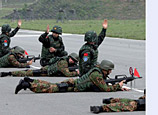
In the last few days, revelations about two U.S. National Security Agency (NSA) surveillance programs have caused international consternation. Two questions in particular require answers.
First: how to find the right balance between national security and individual privacy?
According to the White House, the purpose of intelligence surveillance is to prevent terrorist attacks against the United States. Its ultimate goal is to safeguard national security. Moreover, the project is also subject to judicial, legislative and administrative scrutiny. It can therefore be considered to be "fully justified". According to this logic, Edward Snowden’s leaks will cause significant damage to America’s intelligence gathering capability.
However, in the eyes of some media and the public, the U.S. government stands accused of abusing its power to allow it to monitor private communications. After the 9/11 terrorist attacks, the U.S. government adopted a series of measures to strengthen its surveillance of ordinary people, giving authorities more powers of investigation and search.
Obama himself recently stated to the American public: "Nobody is listening to your phone." He claimed that departments involved have "the right sense of proportion". But who can guarantee that the National Security Agency's network monitoring will safeguard its citizens?
For reasons of national security, a certain amount of regulatory activity is understandable, but the question of "degree" is essential. How to define and how to implement are the standards that need to be agreed.
Second, confronted by the erratic development of the online world, how can countries in a vulnerable position protect their own interests? The U.S. surveillance programs have involved not only U.S. citizens, but also individuals in other countries.
As the birthplace of the Internet, and with a large number of Internet multinational companies, the United States has a considerable degree of control over the majority of domain name root servers. In comparison with other countries, the U.S. holds even greater advantages in cyberspace than in the real world. Yet at the same time, the Internet has become a piece of critical common infrastructure for millions of people worldwide. To maintain the "public welfare" nature of the Internet and to prevent it from becoming exploited as a tool, reliance on voluntary goodwill on the part of the United States is not enough on its own.
Following these revelations, there has been uproar in Europe. The Internet industry there has called for a strong and independent network. This is not only a question of economic interest; more importantly it will help Europe to keep the comprehensive monitoring of U.S. intelligence agencies under some level of control.
The revelations have also sounded warning bells in China. According to media reports Snowden has asserted that the U.S. government has been hacking computers in China and Hong Kong since 2009. The reliability of the charge has yet to be verified. But alongside the rapid development of the Internet in China, it is an indisputable fact that China has become the principal victim of cyber attacks, and has suffered huge losses as a result.
The Internet has become a critical piece of infrastructure for millions of users throughout the world. Creating a sound network environment is in everyone’s mutual interest. Therefore, in addition to self-policing by the network industry and watertight defenses, the most important factor in coping with the network threat is international cooperation.
Employing the authority of the U.N. to promote the establishment of a fair, democratic, and transparent international Internet management mechanism, thereby building peace, security, openness, and cooperation in cyberspace, would be one possible approach.
Only by such means can we truly put an end to the risks of abuse of power, and allow all people around the world to share the benefits the Internet brings in a secure environment.
Edited and translated by Ma Xi, People's Daily Online
Read the Chinese version: “棱鏡”背后的冷思考
















 People cool off in water from orange-coded alert of heat in Chongqing
People cool off in water from orange-coded alert of heat in Chongqing


![]()
